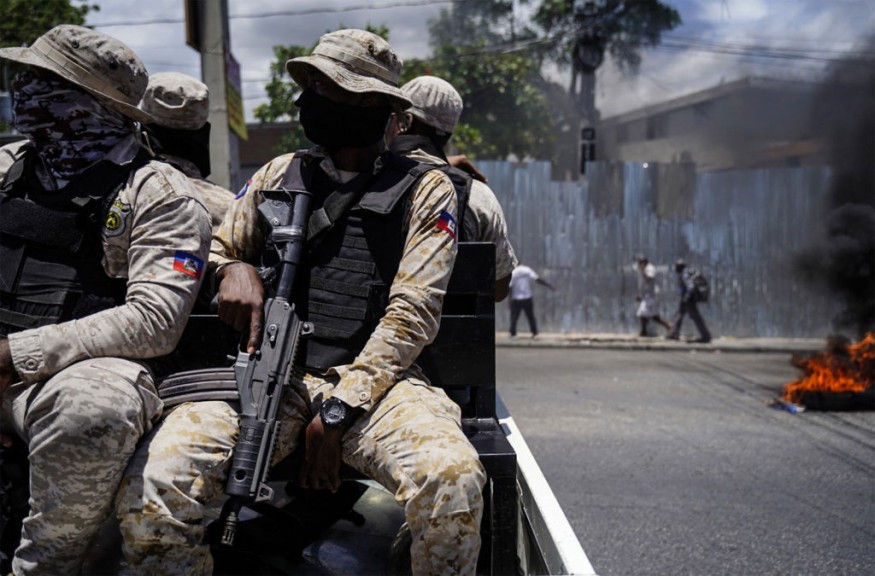Canada to Deploy Warships to Haiti Amid Ongoing Gang Violence

A week after a military surveillance plane from Canada was deployed to Haiti to collect information on the activities of Haitian gangs, warships will also be sent to the violence-stricken nation.
In a meeting of Caribbean leaders of the 15-member Caricom trade bloc in the Bahamas on Thursday, Canadian Prime Minister Justin Trudeau confirmed that Canada will be sending navy vessels to the coast of Haiti, Al Jazeera reported.
Trudeau noted that Haiti is now facing "unrelenting gang violence, political turmoil, and corruption." He added that "now is the moment to come together to confront the severity of this situation."
Trudeau did not mention how many ships would participate in the effort to gather intelligence or the duration of their mission. The Canadian prime minister also revealed sanctions on two additional Haitians.
Haiti's former interim president Jocelerme Privert and ex-political aide Salim Succar have joined 15 others who were already banned from making any economic dealings in Canada amid alleged corruption or ties to Haitian gangs.
The United Nations is urging countries not to deport refugees and migrants from Haiti due to ongoing gang violence and dangerous conditions.
Assistance of Canada to Haiti
According to the Associated Press, Justin Trudeau said the Canadian government would give an additional $12.3 million in humanitarian assistance and $10 million to support the International Office on Migration.
The funds will reportedly be used to protect Haitian children and women along Haiti's border with the Dominican Republic, which has deported tens of thousands of Haitian migrants in the past year.
The prime minister of Canada also vowed $1.8 million to fight illegal drug trafficking and to strengthen border security. Trudeau noted that the "toll of human suffering in Haiti weighs heavily" on him.
Other countries have also offered aid to Haiti, with the U.S. State Department announcing that it imposed visa restrictions on five more Haitians and seven family members it did not identify.
Since October, a total of 44 people have been placed on U.S. restrictions. The U.S., and some other countries, have also provided Haiti military equipment and other resources, including training, to the country's National Police.
Haitian Prime Minister Ariel Henry has called for full-fledged international military assistance to respond to the ongoing violence in his country. The United Nations reported that the killings in Haiti last year increased by 35%, with 2,183 victims, while the number of reported kidnappings doubled to 1,359.
Haiti Gang Violence
Volker Türk, the U.N. High Commissioner for Human Rights, said the February 2023 report of the U.N. on Haiti gang violence is "horrifying" and "paints a picture of how people are being harassed."
The U.N. report found that gang violence resulted in 263 murders in the neighborhood of Cite Soleil from July 8 to December 31, 2022. There were also at least 57 gang rapes of women and girls, including kidnappings and sexual exploitation.
The report specifically mentioned the G-9 gang as a group who "indiscriminately kill anyone" they see. Snipers for the gang have killed an average of six people each week. Aside from violence, Haitian gangs also blocked access to roads and controlled the entry of basic necessities such as food and health services.
This article is owned by Latin Post.
Written by: Mary Webber
WATCH: More Canadian Aid Is Coming for Haiti - but Will It Be Enough? - From Global News
Subscribe to Latin Post!
Sign up for our free newsletter for the Latest coverage!

















